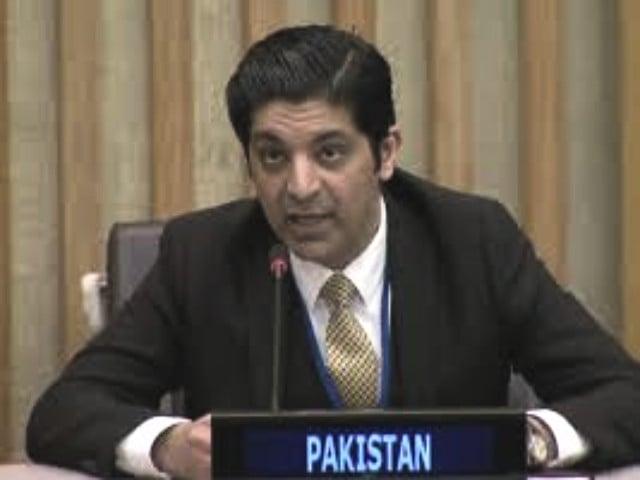UNITED NATIONS:
A Pakistani diplomat in the United Nations told the UN Contracerrrorism Office (Onue Oct) that Islamabad had the “credible evidence” that demonstrated the hand of India in the kidnapping of trains in Baluchistan last month, while offering a scathing response to Indian accusations.
Speaking at the launch of the Network of Associations of Victims of Terrorism (vote) by the UN -Oct in New York on Monday, the Pakistani counselor Jawad Ajmal rejected the accusation of New Delhi that Pakistan was enjoying “propaganda without foundation” against India.
Ajmal referred to the attack of the Liberation Army of Baluchistan (Bla) against Jaffar Express near Sibi in March, which resulted in the loss of at least 30 innocent lives. “Pakistan has credible evidence that this attack had an external sponsorship of our adversaries in the region,” he said, in an obvious reference to India.
Ajmal used his right to respond to the declaration of the permanent representative Indian Yojna Patel, who accused him of misuse of the forum to “enjoy propaganda and make accusations unfounded against India”, and began that Pakistan was involved in terrorism.
Rejecting the accusations of the Indian delegate, Ajmal highlighted Pakistan’s own struggles with terrorism, citing the loss of more than 80,000 lives for two decades. He praised the resilience of the Pakistani nation and paid tribute to the families of the martyrs of the agencies of application of the law and the armed forces.
In his speech previously, Ajmal asked to address the fundamental causes of terrorism, distinguish terrorism from legitimate struggles for self -determination and also address terrorism sponsored by the State.
He also requested a consensual definition of terrorism, taking into account new trends.
“We must address challenges, which emanate from new terrorism tools in social networks and the dark website that seek to deepen divisions and sow the seeds of discord, including incitement to violence,” he said, underlining the need to counteract disinformation campaigns aimed at spreading hate discourse.
He also pointed out the difficult situation of the people of Iiojk, who had been suffering as victims of state terrorism perpetrated by the machinery of the Indian state. Indian perpetrators must be considered “responsible for state terrorism and crimes against humanity,” he said.
He reiterated the call to the international community, particularly to the UN Security Council, to force India to stop state terrorism and oppression in Jammu and Kashmir, and demanded the implementation of the resolutions of the Security Council, which required a free and right plebiscite in the region.




